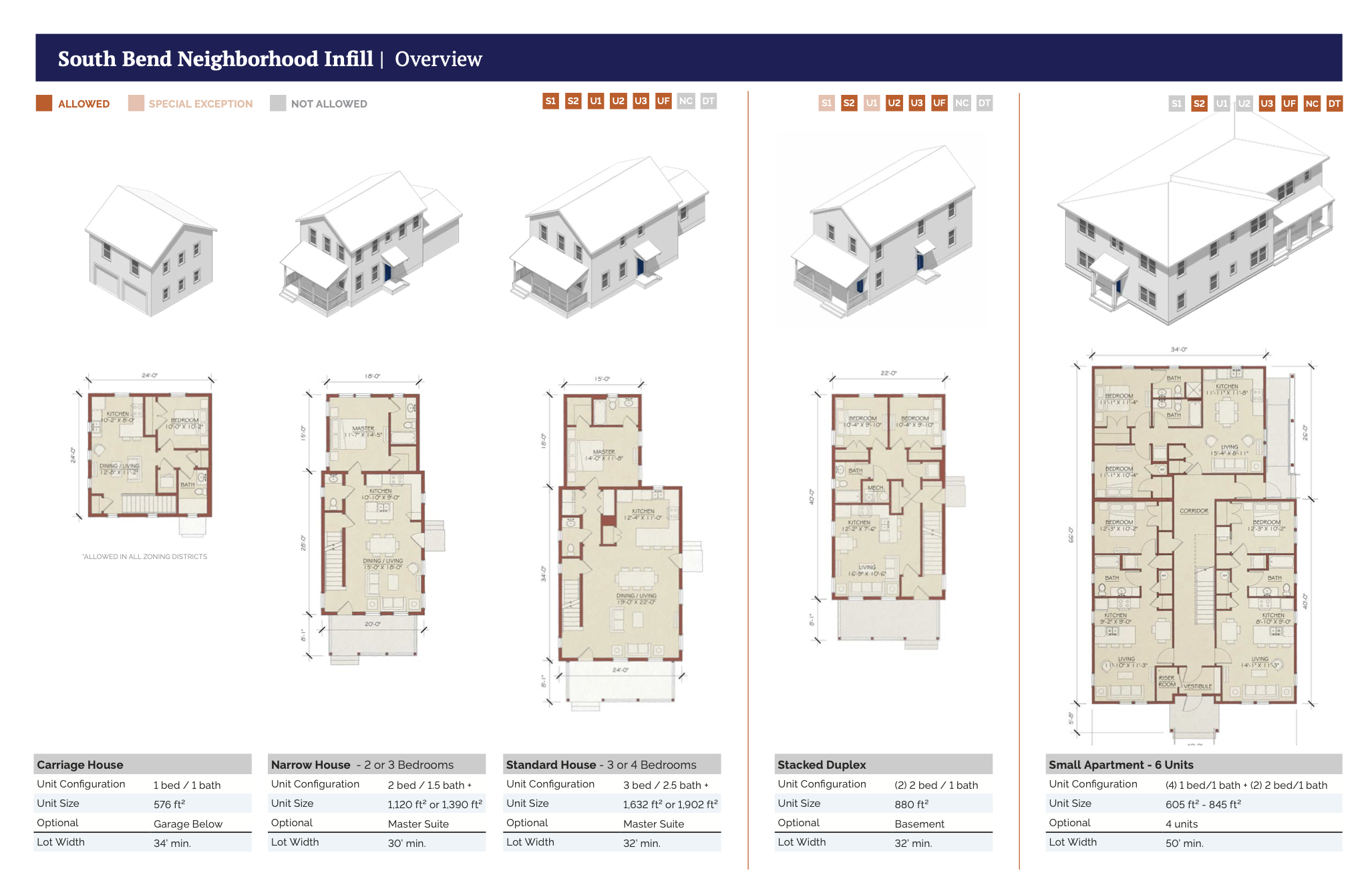‘Housing Catalogs’ Make a Comeback

alvarez via getty images
Once popular in the 1950s, pre-approved housing designs are back and helping cities build homes that aesthetically align with existing homes.
Nothing drives the “Yes in My Backyard” camp crazier than the argument: New development disrupts the character of neighborhoods.
“A lot of the concerns that people have around change in their neighborhoods comes down to the shape of buildings, the color of buildings, the style of buildings, and less so about what actually goes on inside of the building,” said Payton Chung, a developer based in Washington, D.C., and longtime member of the Congress for the New Urbanism.
Zoning laws in the U.S. don’t do much to address those concerns, Chung said. For the last century, local governments have used “euclidian zoning,” which categorizes plots of land by use, such as residential, commercial or industrial. But these zoning laws “make it very difficult to do aesthetic controls.”
In an effort to address those difficulties, some local governments are turning to pre-approved housing plans to incentivize developers to build homes that align with the existing aesthetics of a neighborhood.
Last summer, officials in South Bend, Indiana, published a catalog of pre-approved plans for infill housing in an effort to incrementally increase housing stock in their neighborhoods without fundamentally changing the character of those communities, according to Tim Corcoran, the city’s community investment planning director. Developers can choose a design from the catalog and apply to receive the plans from the city for free. The catalog features a total of five designs, ranging from a 576-square-foot carriage house to a six-unit apartment building.

The intent was twofold.
“We wanted to expedite the approval and the permitting process,” Corcoran said, “and the pre-approved plans help us to achieve that. Secondly, we wanted to ensure a basic level of design quality in what is primarily older neighborhoods within the city that are oftentimes areas where the existing houses are 100 years old or older.”
The document took several months to develop and was created in collaboration with local developers, the city’s zoning board and building department. Builders were also brought in to determine how much it would cost to build each of the designs. That gave developers an idea upfront of how much it would cost to construct the outlined homes.
The catalog removes the need for developers to hire an architect, which can result in significant savings, especially for smaller developers.
“It can cost $5,000, $10,000—maybe more, depending on the type of building—for just the architecture and the drawings,” Corcoran said. “This is one way for us to help incentivize new infill housing by reducing what's called soft costs of construction.”
The plans are geared to smaller lots that are common in cities, rather than the larger plots that exist in the suburbs. Before making the catalog, organizations that expressed interest in developing vacant lots often came in with a “suburban mindset” that wouldn’t always meet the needs and aesthetics of South Bend’s urban areas, Corcoran said, and having pre-approved plans can alleviate that issue.
A housing catalog isn’t an entirely new idea. In the early 20th century, Sears, Roebuck and Co. published catalogs with home designs. Customers could choose a plan and send away for the materials to build their “kit home.” The Sears Catalog is where South Bend drew inspiration from for its modern housing catalog, according to Corcoran.

In the time before modern zoning laws—which were established in the United States in the 1920s—builders could purchase “pattern books” with home designs and schematics to bypass the need for an architect.
Pattern books have seen a revival in more recent decades, according to Chung, the D.C.-based developer. In the 1990s and 2000s, pattern books were published as private documents that builders could purchase. More recently, cities have started developing the books themselves.
In just the last few years, several cities have been looking to pre-approved plans to fill the gap in missing middle housing.
A few years ago, Bryan, Texas, a small city north of Houston, turned to pre-approved plans to create more housing for an influx of college students moving to the area. In 2021, Norfolk, Virginia, published its Missing Middle Pattern Book. That same year, Los Angeles released pre-approved plans for accessory dwelling units, commonly known as ADUs, and today offers dozens of options. Other cities, including Raleigh, North Carolina, and Stockton, California, also have pre-approved plans for ADUs.
Most recently, Spokane, Washington, has decided to move ahead with developing a housing handbook that would include pre-approved plans to be published later this spring, according to Brian Walker, a communications manager for the city. Other communities in the state could soon have the resources to develop their own catalogs as state legislators are considering a bill that would make grants available to cities and counties to develop their own pre-approved plans.
Molly Bolan is the assistant editor for Route Fifty.
NEXT STORY: This Moment is Rife with Opportunities to Advance Racial Equity






